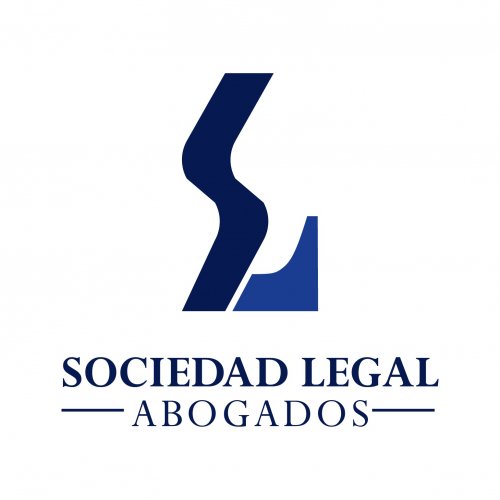Best Divorce & Separation Lawyers in Ecuador
Share your needs with us, get contacted by law firms.
Free. Takes 2 min.
Free Guide to Hiring a Family Lawyer
Or refine your search by selecting a city:
List of the best lawyers in Ecuador
About Divorce & Separation Law in Ecuador
In Ecuador, divorce and separation laws govern the dissolution of a marriage and the separation of married couples. Ecuadorian law recognizes both mutual consent divorce and contentious divorce for specific causes. Understanding these laws is crucial for those going through a separation to ensure that legal obligations are met and rights are protected. The legal framework aims to handle issues such as asset division, child custody, and spousal support fairly, supporting both parties in moving forward post-separation.
Why You May Need a Lawyer
Dealing with divorce or separation can be a highly complex and emotionally charged process. You might need a lawyer if you encounter certain situations, including:
- Disagreements over asset division or child custody arrangements.
- Uncertainty regarding how to handle legal documentation and proceedings.
- Cultural or language barriers affecting your understanding of Ecuadorian laws.
- Requirement for mediation or representation in court.
- The need to ensure fair spousal or child support arrangements.
- Concerns about domestic abuse or the safety of children involved.
Local Laws Overview
The divorce and separation procedures in Ecuador are primarily guided by the Civil Code and related laws that deal with family matters. Key aspects include:
- Grounds for Divorce: Divorce can be through mutual consent or initiated by one party on specific grounds, including adultery, abuse, or abandonment.
- Divorce by Mutual Consent: Both parties agree to the divorce and submit a written agreement for approval by the court.
- Contested Divorce: Initiated when one party disagrees; involves court proceedings to determine resolution.
- Asset Distribution: Ecuador follows a community property system where assets acquired during the marriage are split equally.
- Child Custody: Typically aims to prioritize the best interest of the child, with potential for joint or sole custody arrangements.
- Alimony and Child Support: Determined based on the financial circumstances and needs of both spouses and children.
Frequently Asked Questions
What are the residency requirements for filing a divorce in Ecuador?
Either spouse must have been a resident of Ecuador for at least one year prior to filing for divorce.
Can a foreigner file for divorce in Ecuador?
Yes, foreigners can file for divorce in Ecuador if they meet the residency requirements.
How long does it take to finalize a divorce in Ecuador?
The duration can vary significantly; mutual consent divorces can be processed quickly, while contested divorces might take months or even years depending on complexity.
Is it possible to obtain a divorce without going to court?
Divorces by mutual consent can be processed without a court hearing if the agreement is comprehensive and covers all necessary aspects.
How are assets divided in a divorce proceeding?
Assets are divided equally under Ecuador's community property law, provided they were acquired during the marriage.
What happens if my spouse and I cannot agree on child custody?
If mutual agreement cannot be reached, the matter will be decided by the court in the best interests of the child.
Can I change my name after a divorce in Ecuador?
Yes, you can legally change your name back to your maiden name following a divorce in Ecuador.
What should I do if my ex-spouse does not comply with the divorce agreement?
If an ex-spouse fails to comply with the agreement, you can return to the court to seek enforcement or modification of the order.
Are prenuptial agreements recognized in Ecuador?
Yes, prenuptial agreements are recognized, and they can help govern the division of assets in the event of a divorce.
Can divorce decisions made in Ecuador be enforced in other countries?
This depends on international treaties and the laws of the specific country; legal advice should be sought in the jurisdiction from which enforcement is sought.
Additional Resources
For those seeking more information or assistance, the following resources may be helpful:
- Ministry of Justice, Human Rights and Worship
- Ecuadorian Bar Association
- Local Family Courts
- Ecuadorian Women's Legal Support Networks
Next Steps
If you need legal assistance in divorce or separation, it is advisable to:
- Consult a lawyer who specializes in family law in Ecuador.
- Gather documentation pertinent to your marriage, assets, and any children involved.
- Consider mediation if seeking an amicable settlement.
- Contact local legal services for support and advice.
Taking these steps can help ensure that you are well-informed and prepared for the legal process ahead.
Lawzana helps you find the best lawyers and law firms in Ecuador through a curated and pre-screened list of qualified legal professionals. Our platform offers rankings and detailed profiles of attorneys and law firms, allowing you to compare based on practice areas, including Divorce & Separation, experience, and client feedback.
Each profile includes a description of the firm's areas of practice, client reviews, team members and partners, year of establishment, spoken languages, office locations, contact information, social media presence, and any published articles or resources. Most firms on our platform speak English and are experienced in both local and international legal matters.
Get a quote from top-rated law firms in Ecuador — quickly, securely, and without unnecessary hassle.
Disclaimer:
The information provided on this page is for general informational purposes only and does not constitute legal advice. While we strive to ensure the accuracy and relevance of the content, legal information may change over time, and interpretations of the law can vary. You should always consult with a qualified legal professional for advice specific to your situation.
We disclaim all liability for actions taken or not taken based on the content of this page. If you believe any information is incorrect or outdated, please contact us, and we will review and update it where appropriate.
Browse divorce & separation law firms by city in Ecuador
Refine your search by selecting a city.













